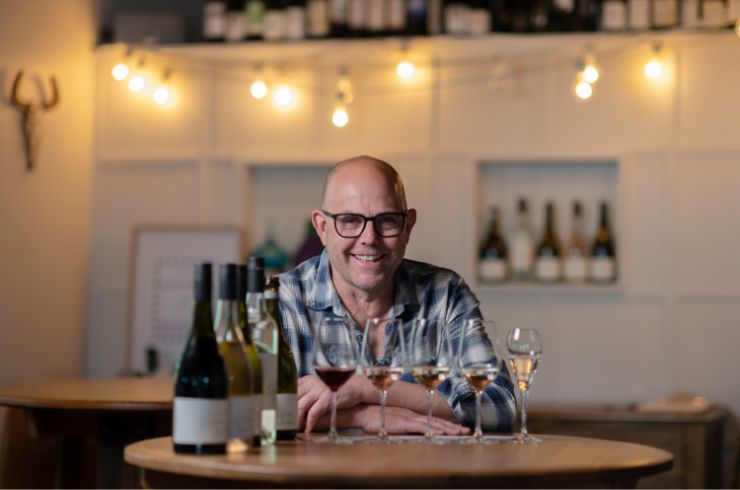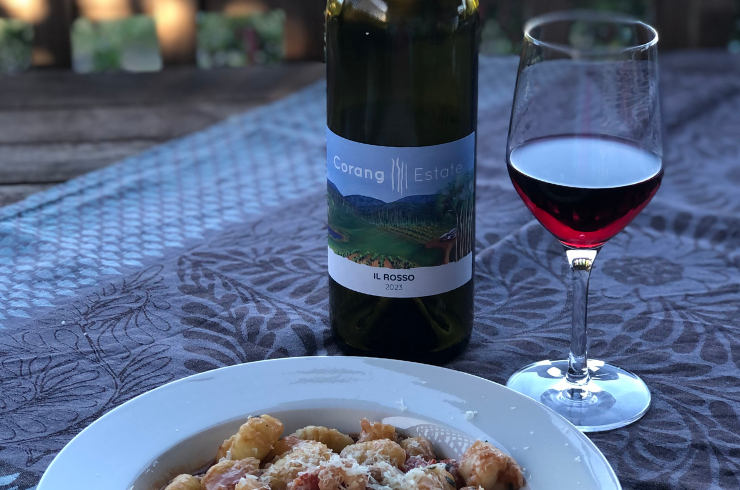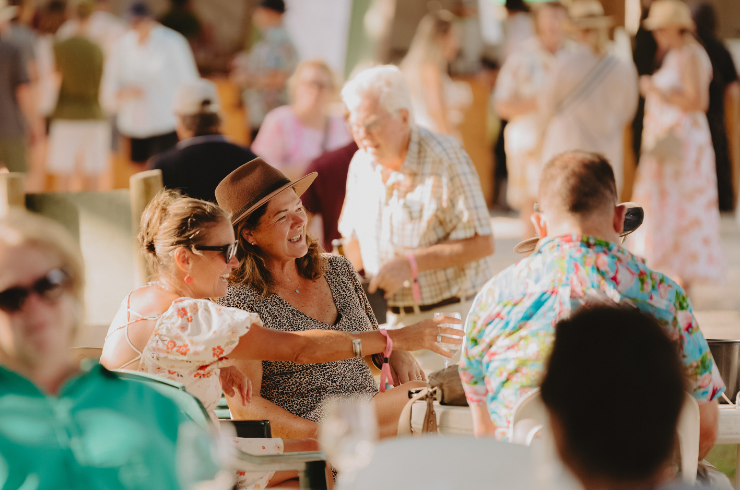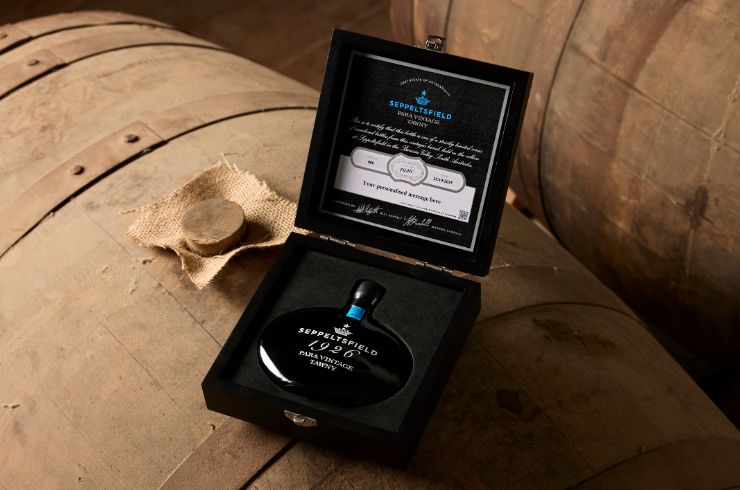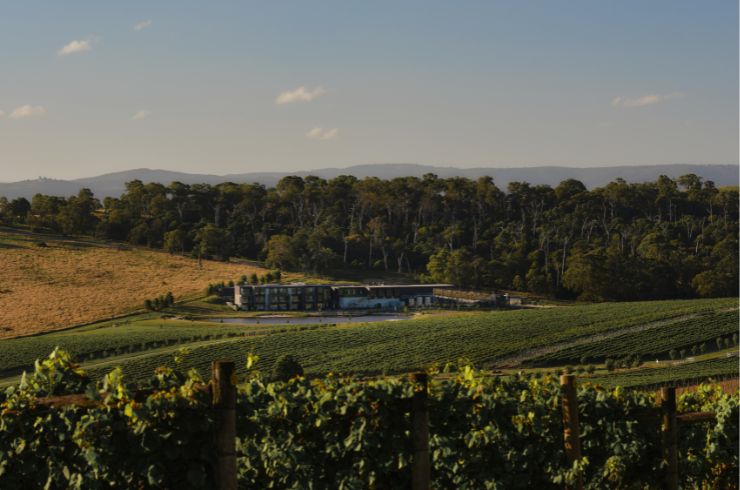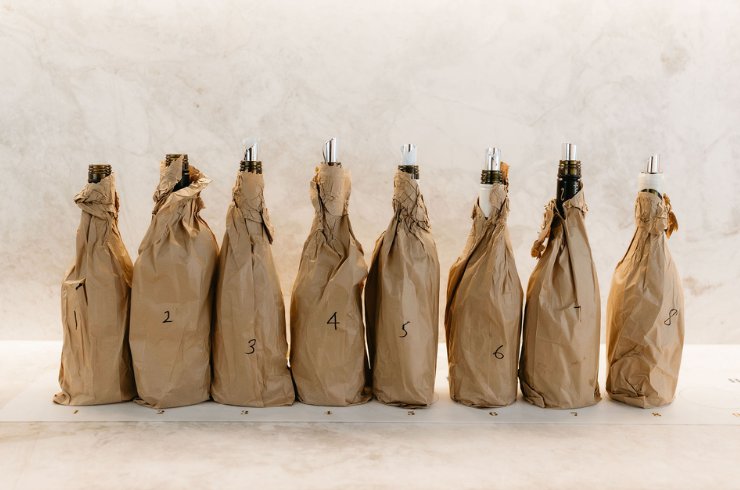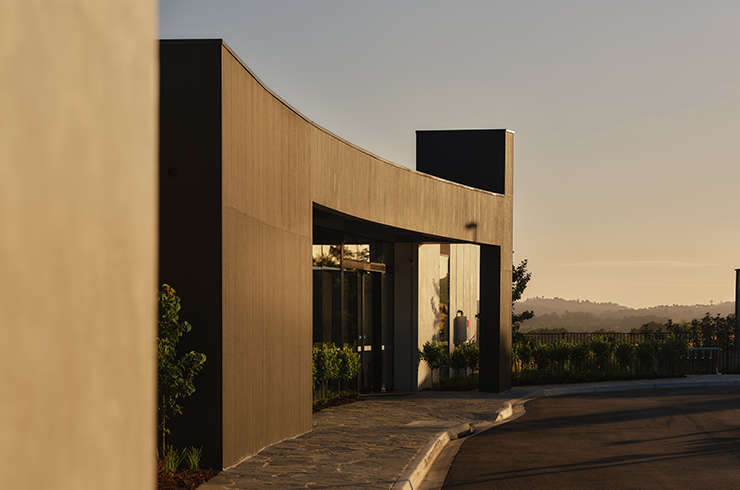Helen Xu pulls her cream-coloured cardigan closer around her shoulders and gazes out over the vineyards. It’s autumn in the Yarra Valley, and the leaves are just starting to yellow. For 15 years, she and husband Joey Zeng have owned the 80-hectare site previously known as Fernando Vineyard – adding the 16-room hotel and restaurant, Re’em, in late 2023. Yet owning a vineyard wasn’t initially the dream, and not the reason they left China – that, Helen says, was so their son could go to school in Australia. But that's only half her story.
Helen was born in the mid 1960s and grew up on her parents' rice farm in China’s eastern Zhejiang province. Firmly under communist rule, the country was very poor – almost 90 per cent of families lived on $2 or less a day – and very isolated. “We had no understanding of the western world – there was no outside information at all,” she says. “We were taught to listen and to follow what we were told. There was a lot of brainwashing.”
But as China began to open itself up to the world in the wake of then-leader Deng Xiaoping’s transformative economic reforms in the late ’70s and ’80s, things slowly began to change. Foreign language bookstores popped up across the country. They mostly sold government-approved reference and textbooks, although occasionally blurry, black-and-white photocopies of international magazines, like Reader’s Digest, could be found in the restricted sections.
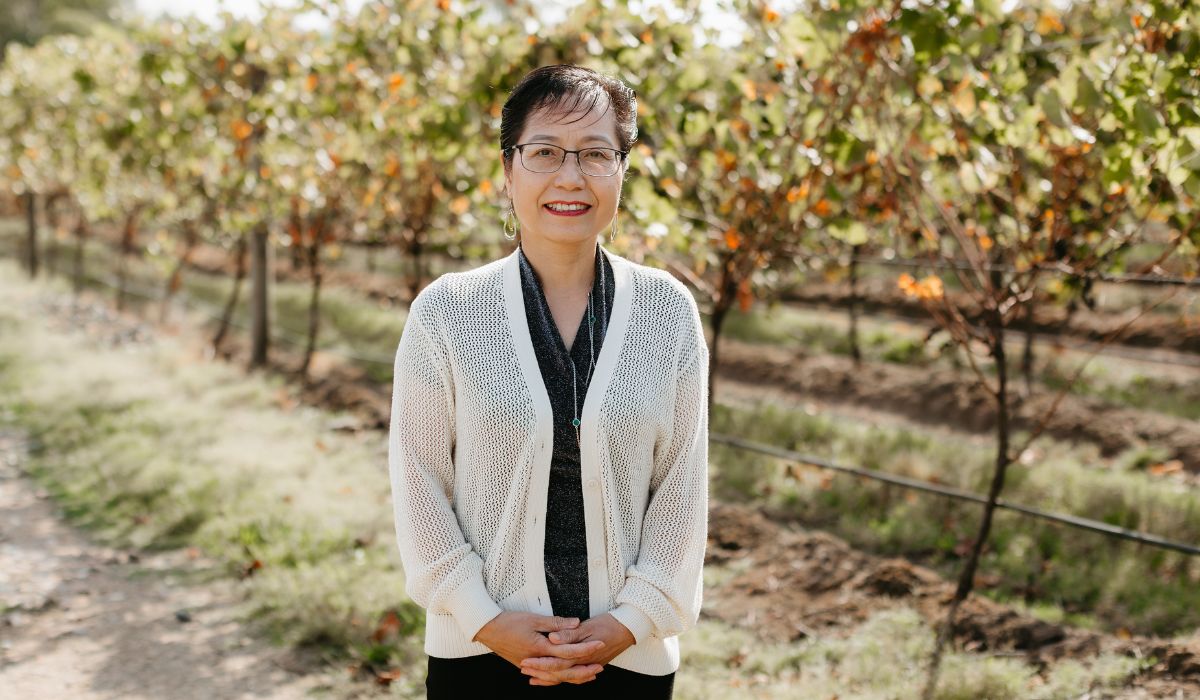
Helen also remembers the time her high school English teacher let her read a letter sent from his brother in America. “He wrote about a computer chip that was the size of a fingernail but could hold all the books in the Tianyi Ge library,” she says. “All these things opened a door for me into a world beyond the one I was living in."
After high school, Helen completed a master’s degree in chemistry and was then hired as a teacher by the same university. “Unfortunately, the uni was very politically dominated,” she says. “I didn’t like it.” One day, while flicking through the newspaper, Helen saw a job ad for Nestlé. She applied and got the gig – that was the easy part. Resigning from the university was much harder.
“They were so angry,” she remembers. “I was the first one to do that – to leave the job. They told me I was a very bad example to the other teachers.” They burned all Helen’s belongings and refused to release her personal files. She was just 25 at the time. “It was very, very hard to deal with,” she says.
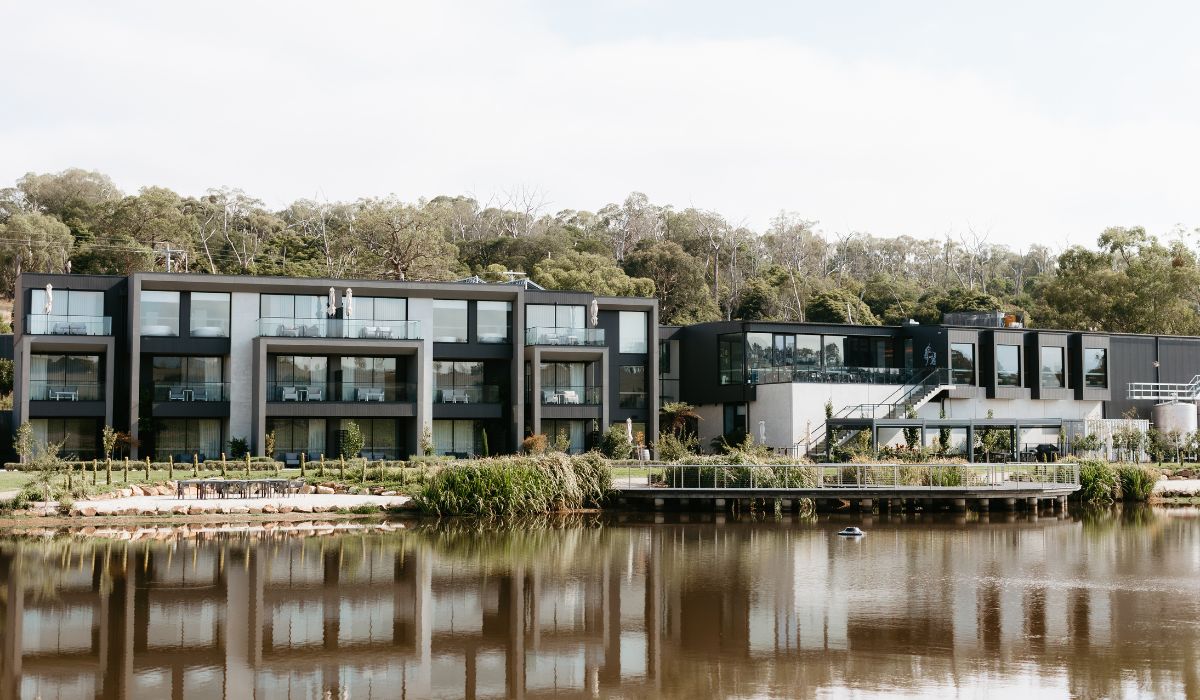
Throughout the five years Helen worked as a food chemist for Nestlé, China’s economy started to skyrocket, and so did private business. So, at the behest of a relative who wanted her to run his new leather-processing company, she resigned (a much better experience this time around, mercifully). A job as a sales rep for a company who imported screen-printing equipment from Italy followed – despite securing four distributors and several direct customers for the company, she was spied on, lied to, and eventually forced out because she’d had the gall to tell her boss that she didn’t think moving to an expensive office made good financial sense. Heavily pregnant at the time, Helen then set up her own operation. “In one month, I got my baby and my business,” she says.
Helen and Joey’s business, which now specialises in textile ink exports, is still thriving today, and counts big brands including Adidas among its contractors. It would probably have been enough for them if their son hadn’t inherited his mother’s rebellious streak.
“Like me, he’s very independent,” says Helen. “He’s got his views, his ways.” She knew he’d be crushed by the system if they stayed in China, so in 2009, when he was around 10, they left. They settled in Glen Waverley in Melbourne's east, and once their son was happily enrolled in school, began to think about their next project. “I said, let’s buy a vineyard,” says Helen. “It’s so romantic.”
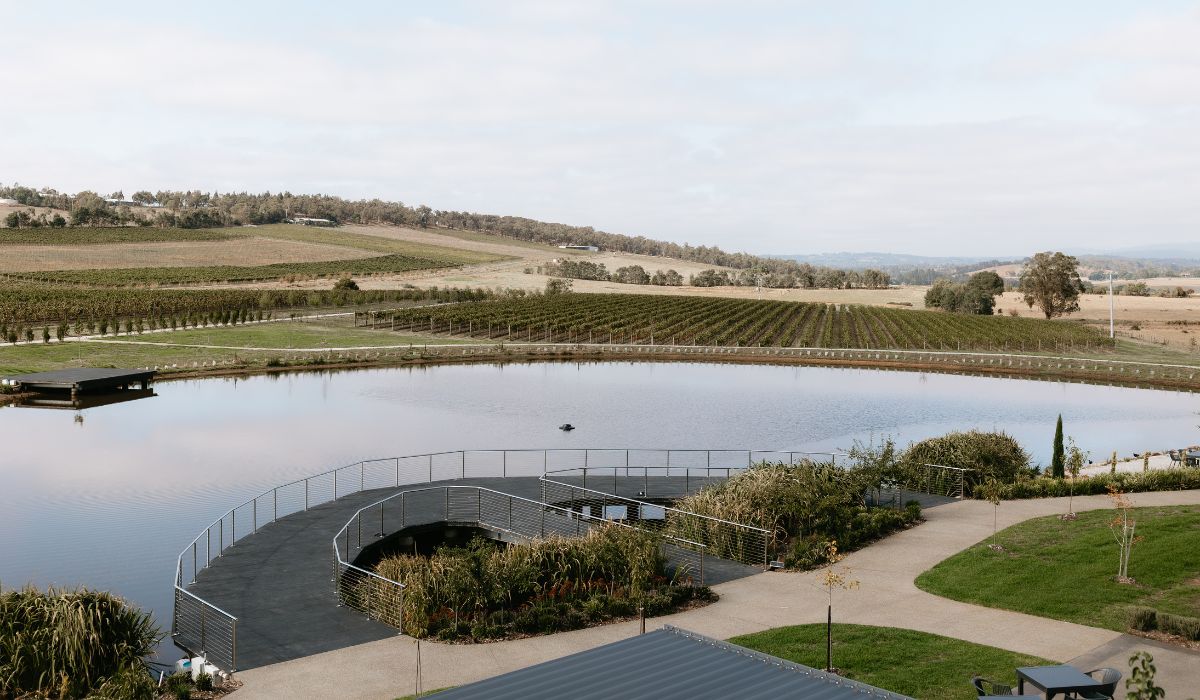
Although when Helen first saw the Spring Lane site in 2010, she was pretty unimpressed. “I was a farmer, so even though it was my first time in a vineyard, I knew the vines weren’t very prosperous.” It was also way out of their budget. But when the property was still on the market six months later, they put in an offer.
They hired a vineyard manager and began to restore the estate, pruning, retrellising and even replanting certain sections. Wine was first produced under their Helen & Joey Estate label in 2012, and before the end of the decade, they had started construction on a new winery and cellar door. A tourism development grant from Tourism Vic enabled them to build the luxury hotel and restaurant, which picked up a Chef’s Hat in The Age Good Food Guide 2025.
Even though owning a vineyard and winery wasn't on Helen and Joey’s bingo card, as it’s turned out, there are few ventures that combine farming, science and chemistry, textiles and design, and business operations as well as this one. She believes her success mostly comes down to luck, although, as she looks out over everything she’s created, she admits: “Growing up, we were taught to devote ourselves to China, but also to ourselves, to everything we do. I think that’s still part of me.”
This article first appeared in issue #79 of Halliday magazine. Become a member to receive all four issues per year, digital access to over 185,000 tasting notes, plus much more.
Order your copy of the 2026 Halliday Wine Companion today
The 2026 edition of the seminal guide to Australian wine, the Halliday Wine Companion, is on sale now. Secure your copy today, or sign up to receive one as part of your Vintage Halliday membership.
Latest Articles
-
Meet the winemaker
The "trifecta": Why La Prova's Sam Scott chose to focus on Italian varieties
2 days ago -
Wine Lists
The rise of Italian varieties in Australia: 14 must-try wines rated 91+
2 days ago -
News
Back-vintage tastings, cellar tours, degustations – why you should go to Tastes of Rutherglen this March
18 Feb 2026 -
News
The history of Seppeltsfield's treasured 100 Year Old Para Vintage Tawny through our favourite tasting notes
18 Feb 2026
